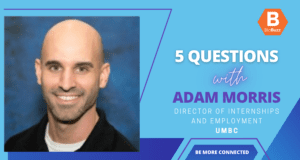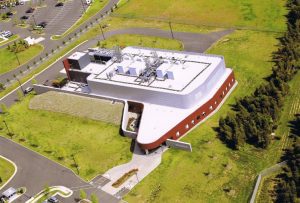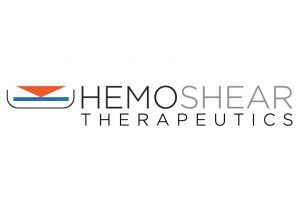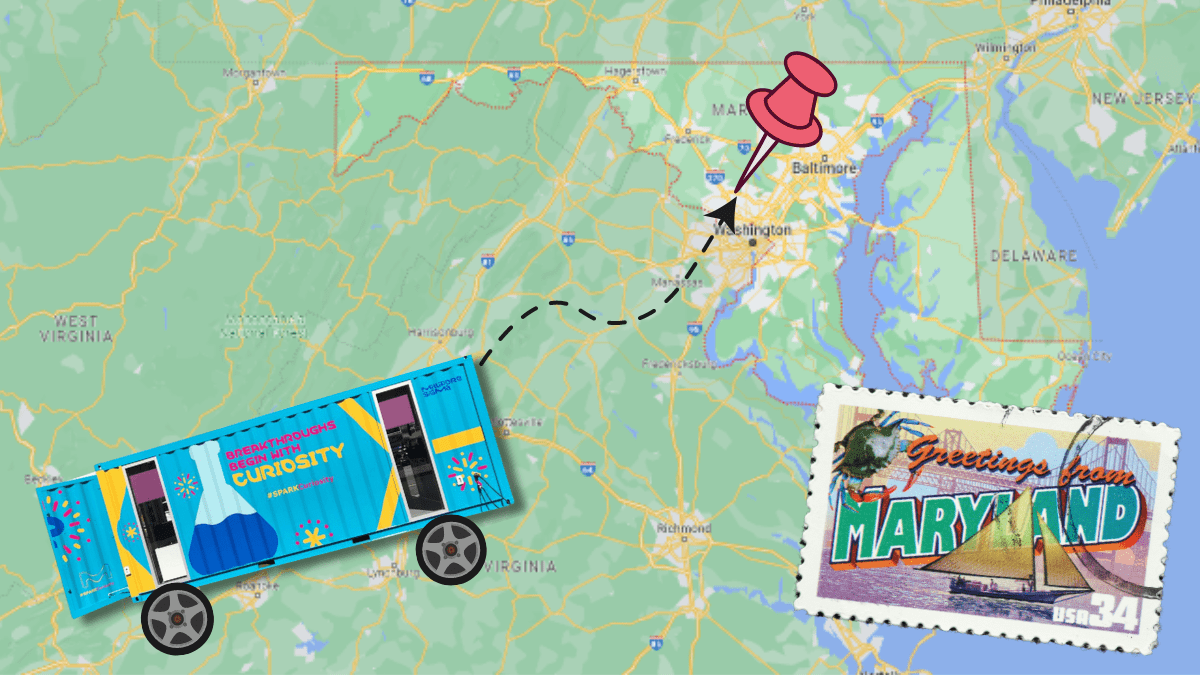
MilliporeSigma’s Curiosity Cube Rolls Into Maryland, Bringing Hands-on Learning Opps to Local Students
By Alex Keown and Sarah Ellinwood
May 9, 2023
If you’re a scientist, chances are growing up you had some kind of experience that was the catalyst for your love of science – whether it be collecting bugs from your backyard, participating in a science fair, or watching Bill Nye on a huge analog TV your teacher rolled into your class on a cart.
Many pinpoint their love of science starting in elementary or middle school. Unfortunately, though, not all schools and parents have access to resources to nurture that initial interest, and without nurturing that interest will fizzle.
To help students’ scientific curiosity flourish, MilliporeSigma rolled out its Curiosity Cube, a mobile platform that takes science education to students not only across Maryland, not only across the nation, but across multiple countries.
MilliporeSigma, the U.S. and Canada Life Science business of Merck KGaA, Darmstadt, Germany, operates a facility in Rockville, MD.
First launched in 2017, the Curiosity Cube is a traveling shipping container that is equipped with the latest scientific technology and designed to provide a stimulating and immersive learning environment. It builds on the company’s Curiosity Labs program that takes company employees into classrooms to conduct hands-on science experiments with students.
Each year the Cube has a particular theme, with a different set of experiments to match. This year it’s all about detecting and identifying contamination – a very fitting theme considering the Rockville site’s key focus in biosafety. Students can check out the types of particles in a sand sample using a handheld digital microscope, use VR headsets to visualize different types of bacteria, and use pH and glucose readings to test for sample contamination.
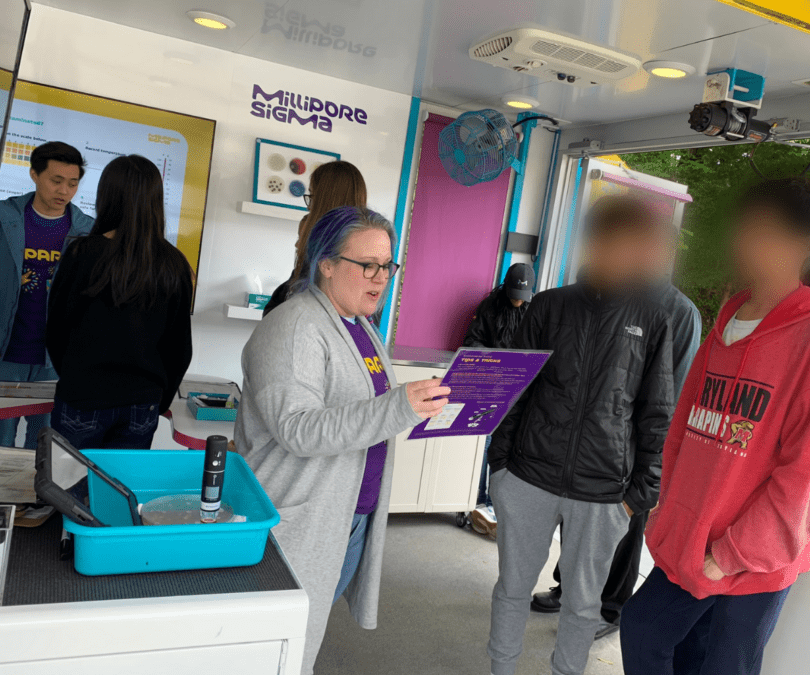
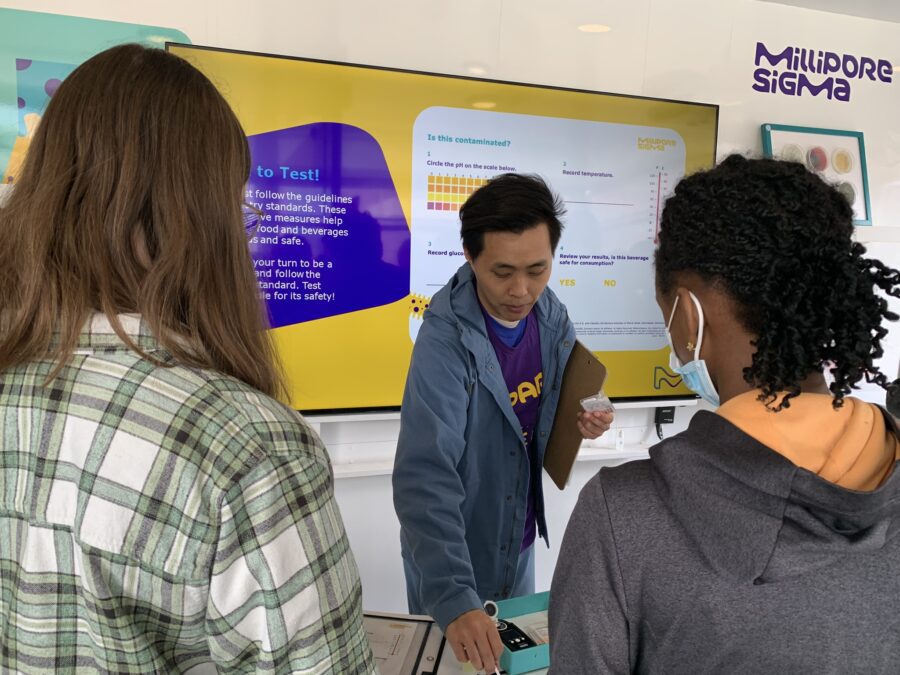
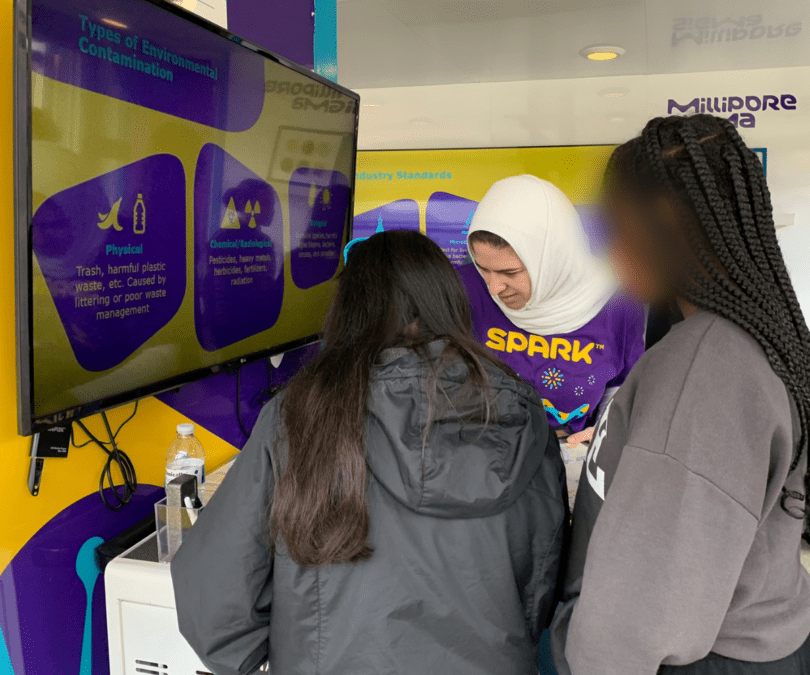

MilliporeSigma team members lead a series of experiments with middleschoolers (SOURCE: BioBuzz)
“We try to cover different parts of the life science industry. Last year we focused on the human microbiome, and next year we’re looking to highlight sustainability efforts,” said Danielle Chavis, Curiosity Cube Coordinator, in an interview with BioBuzz.
This past week the Curiosity Cube visited multiple elementary and middle schools across the Maryland area, many of them Title I schools, which support low-income students. The Curiosity Cube aims to help close the gap in Title I schools, where more than half (53%) of students miss out on the opportunity to experience hands-on science, said Chavis. The experiments are led by MilliporeSigma volunteers who are eager to give back to their communities.
“It’s also important for us to show the diversity in science – we want students to see scientists that look like them, beyond the older-white-male-in-a-lab-coat stereotype,” Chavis added. “We want them to know that anyone can do science, no matter your race, gender, or background.”
The Maryland leg of the tour included a two-day stint at Parkland Middle School in Rockville. Other places the cube visited were William Tyler Page Elementary School in Silver Spring, Wheaton Woods Elementary School in Rockville and Little Towns Children’s Museum in North Bethesda.
Over the course of this year, The Curiosity Cube is expected to hold 124 events in communities across the country.
“Our goal is to reach 45,000 students globally across 12 countries,” Chavis noted.
Demonstrations introducing science education to students early on open up potential career paths that many youngsters, particularly those in Title I schools, never dream of. In recent years, members of the Workforce Development Task Force commissioned by Maryland’s Life Sciences Advisory Board and the Maryland Tech Council have noted the importance of this approach, particularly as the number of STEM-related careers are expected to grow exponentially in the state. Within the next decade, there are expected to be hundreds or thousands of positions opening in the Maryland life sciences ecosystem due to the increasing growth of new and existing companies in the state. And according to the U.S. Bureau of Labor Statistics, STEM occupations are projected to grow two times faster than non-STEM occupations in the U.S. as a whole.
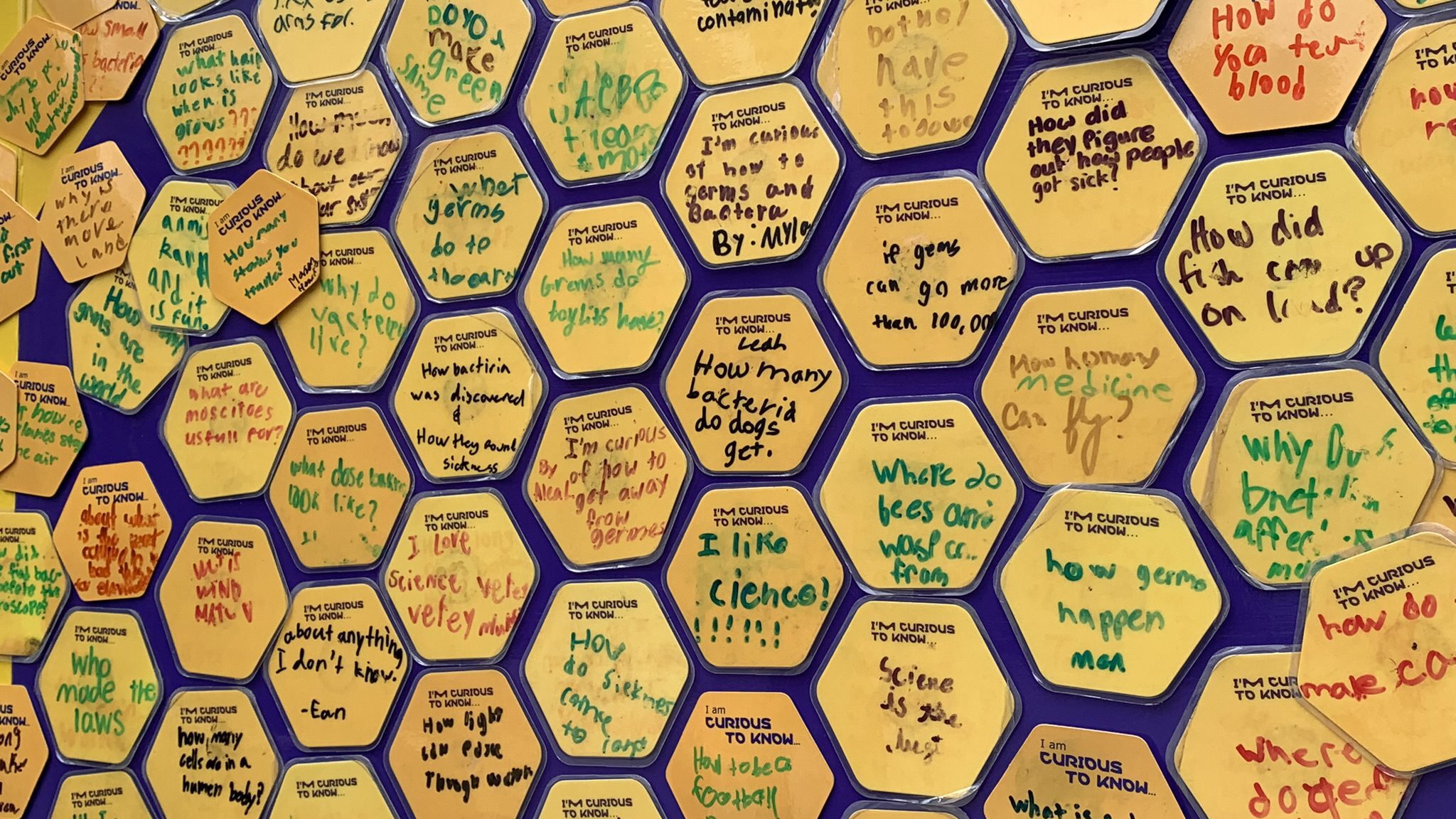
This growth includes MilliporeSigma’s Rockville site, which according to Chavis is poised to add around 500 jobs in the near future. And, contrary to what some believe, many roles in the life sciences do not require high levels of education, including such roles as manufacturing and quality control positions.
The Curiosity Cube isn’t the only attempt from a life sciences company to bring science to Maryland’s schools. Last month, Learning Undefeated, a Maryland-based nonprofit organization focused on STEM education partnered with pharma giant AstraZeneca to expand science education with the new Breakout Box: Body Systems Mission, an immersive laboratory set up inside a traveling shipping container. A year-long partnership between the two organizations will enable Learning Undefeated’s mobile STEM (Science, Technology, Engineering and Math) lab program to travel to schools across the state.
- About the Author
- Latest Posts






